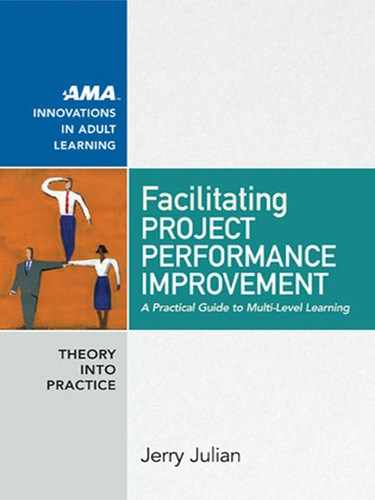94 Roles
American Management Association
www.amanet.org
and I asked them about the project: where it was; what were the chal-
lenges; what might be the hurdles to success; what di culties they
were having.
Process Re ection. Process re ection was reported by just under half (45
percent) of the PMO leaders. June described how her team engaged in
process re ection to improve her product development approach after
completing a series of recent product development projects:
We had done our fourth set of postmortems on releases. Right? So we
get together as a team and we say, “Okay. What happened this time?
What was really good this time? What wasn’t so good, etc., etc.?” And
what we realized was three quarters in a row, we were having role and
responsibility issues and decision right issues, and one of the root causes
was organizational change. So what we realized was, “Is there a way to
sort of codify at a point in time what we’re asking someone to do?”
Similarly, Patty described how her team re ected on its processes in
order to continuously improve:
And we did an actual lessons learned, if you will, of the process that we
had initially designed and developed, which includes a three- phase pro-
cess on how we nominate, prioritize, and select portfolio items. And
then we’ll go through an end- to- end evaluation to identify opportuni-
ties to streamline, be more e cient, and articulate better results.
Formal Training
Of the PMO leaders in this study, 45 percent indicated that they provide
formal training in project management that enables lessons learned or
“best practices” to be shared or transferred, including project methodolo-
gies and “soft skills” that are deemed to be important within the organiza-
tion. Classroom training of this sort is made available to project managers,
team members, and in some cases senior executives. Debra described how
her organization, in conjunction with the training group, rolled out a new
project management training program for executives:
The Project and Program Management Function (PMO) 95
American Management Association
www.amanet.org
Actually, we also o er, I’m going to call it like a—the Fire Hose Proj-
ect Management Class for Executives. We call it “Just Enough Proj-
ect Management,” so we o er that, so that we’re hitting all the levels.
From an executive’s perspective, “What are some of the things I need
to be looking for in order to help project managers run projects for my
organizations? What are some of the areas I can assist?” We actually
give them a laminated card with the phases of a project, and it’s all
PMI- compliant. What are the phases? And then what are the questions
they should be asking when they’re in a speci c phase?
Similarly, Cathy described how her organization rolled out training for
project members:
We have a certain group that provides training, that we’ve contracted,
that has actually—you can take how to run projects from a pure state,
and then you can also put the Consumerco pieces into that training.
And that’s what this particular organization was able to do. The head
of the training was able to make that connection with them and to
have it customized so that not only did you get the theory, but you
actually got a lot of the practical sides of the pieces that we require
here at Consumerco.
Personal Experience as Project Manager
Almost half the PMO leaders (40 percent) reported that they either had
learned from past project experiences themselves or had sta members
who drew on their own experiences as former project managers within
the same organization. These personal experiences as project managers
within the organization were perceived to have shaped their thinking
about areas that needed improvement. Harold talked about how he drew
on his previous experience as a project manager within his organization
to develop ideas for improvement, saying, “Part of getting this job was I
took a lot of my experiences as a PM and said, here’s the things we need
to work at from a PM’s perspective.” Debra explained how one member
of her sta had similarly drawn on his experience as a project manager to
document lessons learned in order to improve future projects:
..................Content has been hidden....................
You can't read the all page of ebook, please click here login for view all page.
